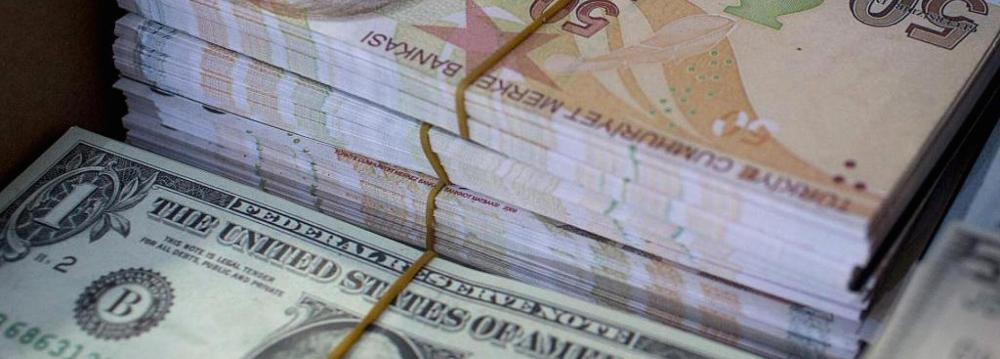The Turkish lira fell as much as 6.6% against the dollar to an eight-month low in early, low-volume trading in Asia after the US blocked processing for the majority of new visas in Turkey, which responded in kind.
The lira weakened to an intraday low of 3.853 per dollar, the softest level since January 30, though trade was thin as the Monday session got underway. The currency had pared losses to be down 2.8% against the greenback in morning trade, news outlets reported.
The visa-service suspensions were “a tit for tat, if you like, reaction. That sparked concerns over the stability of the lira,” Rodrigo Catril, currency strategist at National Australia Bank, said on Monday. “Turkey has a huge current account deficit and therefore a huge need for funding.”
A country develops a current account deficit when the value of its imports exceeds its exports, leaving a deficit that usually must be financed by borrowing.
Turkey’s current account deficits averaged $4.75 billion a month for the last three months, the widest since 2013, according to data from Macquarie, CNBC said.
The decline came in the wake of rising tensions between the two NATO members.
On Sunday, the US Embassy in the Turkish capital said on Twitter that “recent events” had forced Washington to reassess Ankara’s commitment to the security of the US mission and its personnel. All non-immigrant visa services had been suspended “effective immediately,” the embassy added.
The escalation in tensions between the two sides came after the arrest of a US embassy employee last week, the second to be arrested in 2017, on top of at least a dozen US citizens held under yet unproven allegations of allegiance to Fethullah Gulen, a self-exiled Islamic preacher living in Pennsylvania whose extradition Turkey has sought to no avail.


